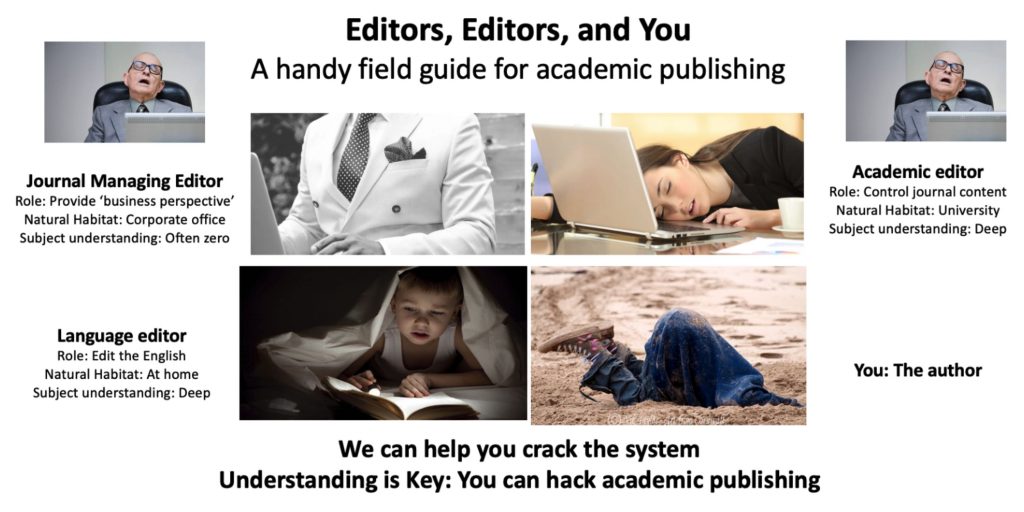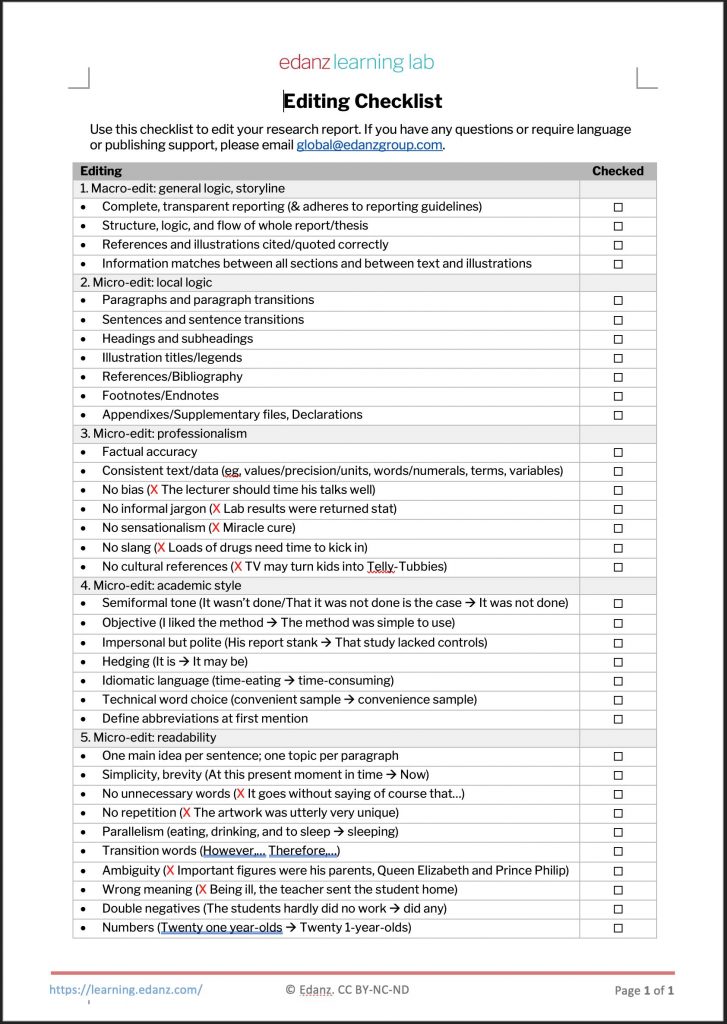What is an “editor” anyway?
The word ‘editor’ in English can be confusing as it refers to a number of distinct roles within academic publishing. It’s important to have these clear in your mind as you think about writing, submitting, and (successfully) publishing your work.
Language editors
You might encounter ‘language editors’ such as those that work with Edanz. These colleagues are at the coal face of academic publishing, carefully going over the articles we write to ensure that they are well-constructed and free from errors in spelling, punctuation, and grammar.
We encourage our English as a second language (ESL) authors to get their work checked before submission, at least by a native speaking colleague or, indeed, a professional language editor.
Academic editors
‘Academic editors’, on the other hand, are those colleagues working at journals who handle submissions and, often, the peer review process.
They are decision makers, deciding which articles are relevant enough for peer review. Academic editors think about readership: they want to handle papers that colleagues are going to find interesting. This is key to keep in mind when you make submissions to international journals: Is your message interesting and broad enough to appeal to the academic editor and thus the wider readership of the journal?

It’s important to take a step back and think about the bigger picture of your work:
- How does your work relate to a large unanswered question or debated issue?
- What’s the key message of your work?
Why not try to write this down in one or two sentences before you start the whole process of putting your research together for publication?
Ensuring your paper has the highest possible chance of being sent out for peer review by the academic editor is the first part of the publishing process. This can lead to revisions or even a quick acceptance. English quality and readability are therefore very, very, very important! We always ask peer reviewers not to comment on the quality of the English, not to act as language editors, but they often do.
For this reason it’s important to consider getting your papers edited before submission. This can give you significantly (300%) better chances of getting to peer review and therefore eventual publication.
Think like a professional editor
To prepare your manuscript for professional editing, it is a good idea to first check it yourself. Think like an editor (like a language editor AND like an academic editor).
The checklist below will help guide to you. Sign into your Edanz account and download it now for free.
Editing Checklist (free for Edanz members)







